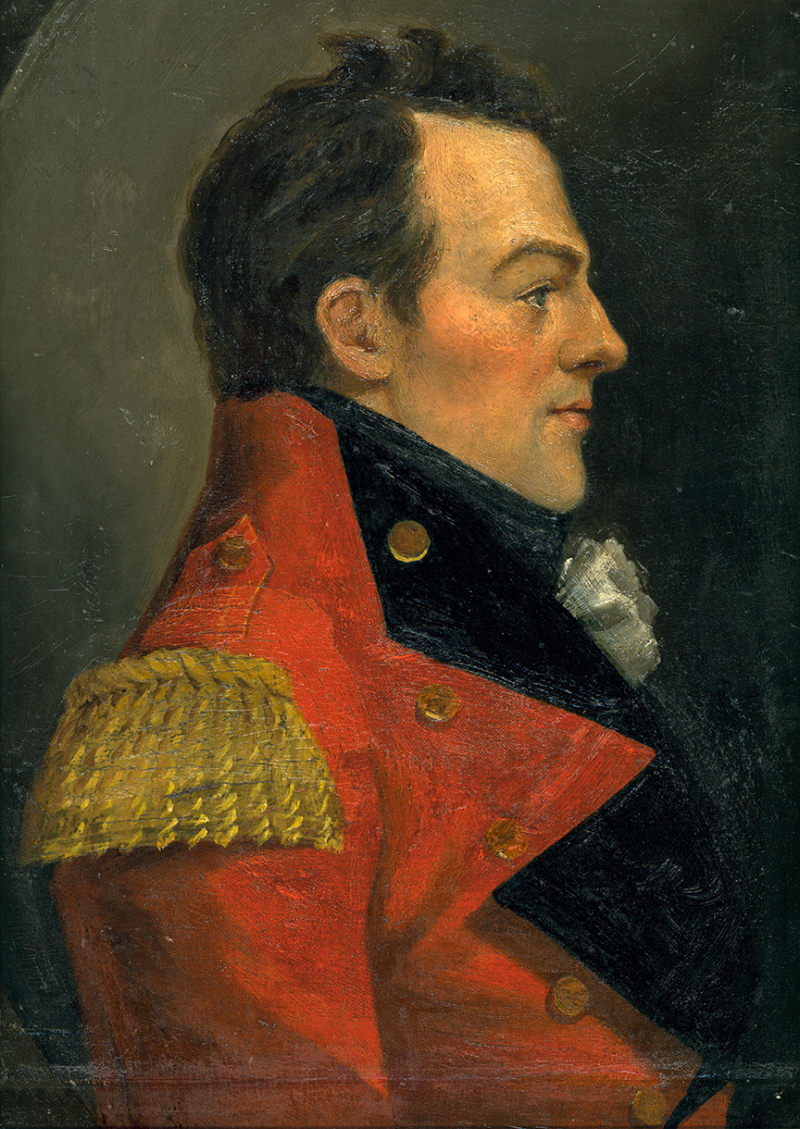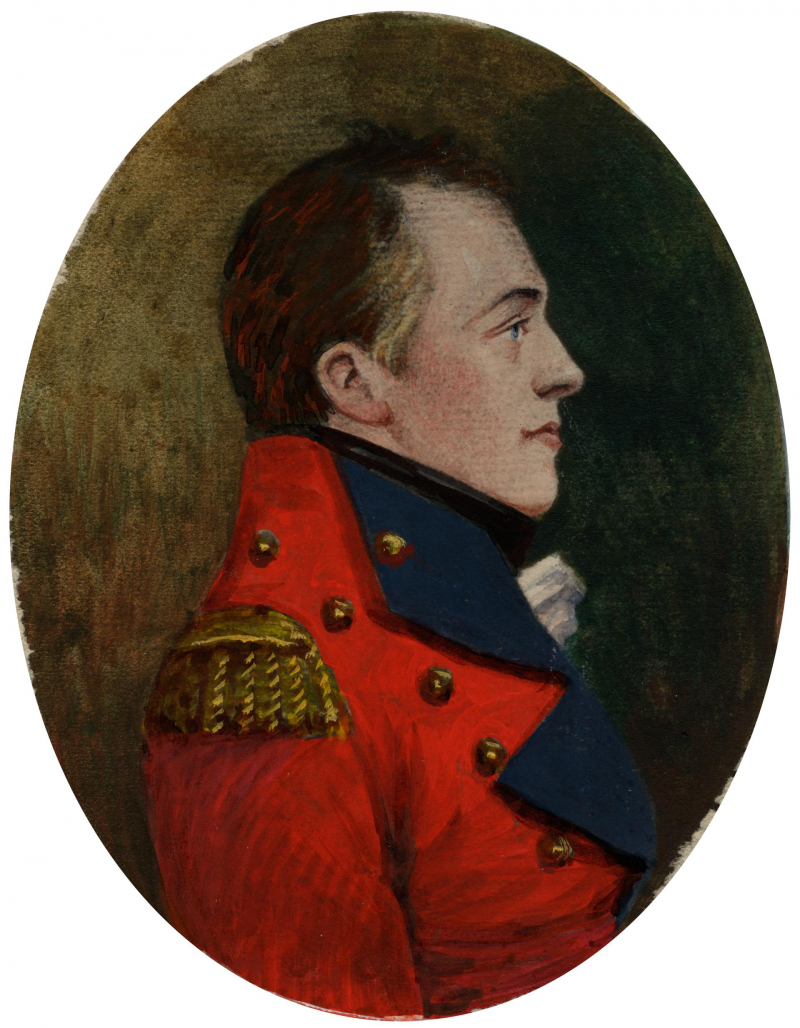Isaac Brock
Major-General Sir Isaac Brock KB (October 6, 1769 - October 13, 1812) was a British Army officer and Guernsey colonial administrator. In 1802 Brock was assigned to Lower Canada. Despite desertions and near-mutinies, he successfully led his regiment in Upper Canada (part of modern-day Ontario) for many years. He was promoted to major general and was in charge of defending Upper Canada against the US. While many people in Canada and the United Kingdom believed that war could be avoided, Brock began to prepare the army and militia for what was to come. When the War of 1812 broke out, the people were ready, and quick victories at Fort Mackinac and Detroit thwarted American invasion attempts.
Brock's accomplishments, particularly his success in Detroit, earned him a knighthood in the Order of the Bath and the moniker "The Hero of Upper Canada." Although the two men only collaborated in person for a few days, their names are frequently linked. Brock died at the Battle of Queenston Heights, which the British won.
Brock is regarded as one of Canada's greatest military heroes. He was voted number 28 on the television show The Greatest Canadian, despite the fact that he was not born or naturalized in Canada.
Despite the fact that many Canadians have come to regard Brock as one of their own, Brock never truly felt at home in Canada. On the whole, he saw Canada as a backwater, and he longed to return to Europe to fight Napoleon. Brock distrusted the Canadian colonists, many of whom he suspected of being American sympathizers, and he was hesitant to arm them indiscriminately to help defend the colonies. He advocated for the use of British regulars and Tecumseh's warriors, as well as the expansion of volunteer forces that could be trained and supervised.
Several legends and myths about Brock have emerged since his death. The story of Brock's betrothal to Sophia Shaw, the daughter of General neas Shaw, was first published in 1908. There is no supporting evidence for the claim, and most biographers consider it apocryphal. In 1859, a legend about Brock's horse Alfred was published. The horse was allegedly shot and killed during the battle while being ridden by Macdonell, and it is commemorated in a monument erected in 1976 in Queenston near the cairn marking the spot where Brock fell. However, little evidence supports this account.
An unknown company issued a series of private half-penny tokens honoring Brock as "The Hero of Upper Canada" in 1816. Due to the initial distrust of "army bills," paper notes issued by Brock when there was a currency shortage caused by economic growth, private copper tokens became common in Canada.
Brockville and Brock in Ontario, Brock in Saskatchewan, the General Isaac Brock Parkway on Highway 405, and Brock University in St. Catharines, Ontario have all been named in his honor. One school in Winnipeg is named after him, as are public schools in Toronto, Guelph, Hamilton, London, Vancouver, and Windsor, Ontario. The province erected an Ontario Historical Plaque to commemorate Major-General Sir Isaac Brock's role in Ontario's heritage. A section of Spadina Avenue south of Queen Street in Toronto was once named Brock Street in his honor.












